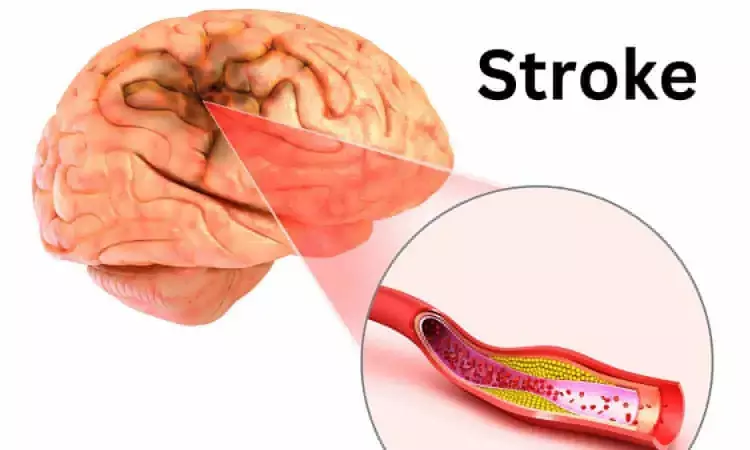- Home
- Medical news & Guidelines
- Anesthesiology
- Cardiology and CTVS
- Critical Care
- Dentistry
- Dermatology
- Diabetes and Endocrinology
- ENT
- Gastroenterology
- Medicine
- Nephrology
- Neurology
- Obstretics-Gynaecology
- Oncology
- Ophthalmology
- Orthopaedics
- Pediatrics-Neonatology
- Psychiatry
- Pulmonology
- Radiology
- Surgery
- Urology
- Laboratory Medicine
- Diet
- Nursing
- Paramedical
- Physiotherapy
- Health news
- Fact Check
- Bone Health Fact Check
- Brain Health Fact Check
- Cancer Related Fact Check
- Child Care Fact Check
- Dental and oral health fact check
- Diabetes and metabolic health fact check
- Diet and Nutrition Fact Check
- Eye and ENT Care Fact Check
- Fitness fact check
- Gut health fact check
- Heart health fact check
- Kidney health fact check
- Medical education fact check
- Men's health fact check
- Respiratory fact check
- Skin and hair care fact check
- Vaccine and Immunization fact check
- Women's health fact check
- AYUSH
- State News
- Andaman and Nicobar Islands
- Andhra Pradesh
- Arunachal Pradesh
- Assam
- Bihar
- Chandigarh
- Chattisgarh
- Dadra and Nagar Haveli
- Daman and Diu
- Delhi
- Goa
- Gujarat
- Haryana
- Himachal Pradesh
- Jammu & Kashmir
- Jharkhand
- Karnataka
- Kerala
- Ladakh
- Lakshadweep
- Madhya Pradesh
- Maharashtra
- Manipur
- Meghalaya
- Mizoram
- Nagaland
- Odisha
- Puducherry
- Punjab
- Rajasthan
- Sikkim
- Tamil Nadu
- Telangana
- Tripura
- Uttar Pradesh
- Uttrakhand
- West Bengal
- Medical Education
- Industry
Apixaban not superior to aspirin for preventing recurrent stroke in patients with atrial cardiopathy: JAMA

USA: Findings from the ARCADIA randomized clinical trial (RCT) showed that apixaban, a novel oral anticoagulant, is not superior to aspirin in reducing recurrent stroke risk in patients with cryptogenic stroke and evidence of atrial cardiopathy without atrial fibrillation (AF).
The study, published in the Journal of the American Medical Association (JAMA), sought to determine if anticoagulation is superior to antiplatelet therapy for the prevention of recurrent stroke in patients with cryptogenic stroke and evidence of atrial cardiopathy. In the RCT comprising 1015 patients, the researchers found no significant difference in the rate of recurrent stroke between the apixaban group (annualized rate, 4.4%) and the aspirin group (annualized rate, 4.4%).
Atrial cardiopathy is defined as any complex of architectural, structural, contractile, or electrophysiologic changes impacting the atria with the potential to produce clinically relevant manifestations. Atrial cardiopathy is strongly linked with incident atrial fibrillation. Several markers of f atrial cardiopathy are associated with ischemic stroke risk even in the absence of clinically apparent AF.
Given the proven role of anticoagulation in atrial fibrillation and the interrelationship between AF and atrial cardiopathy, anticoagulation may also reduce the risk of stroke in patients with atrial cardiopathy and no clinically apparent atrial fibrillation, however, there is no clarity on the same. Therefore, Hooman Kamel, Weill Cornell Medicine, New York, New York, and colleagues designed the ARCADIA trial to compare anticoagulation versus antiplatelet therapy for secondary stroke prevention in patients with cryptogenic stroke and evidence of atrial cardiopathy.
ARCADIA is a multicenter, double-blind, phase 3 randomized clinical trial comprising 1015 participants with cryptogenic stroke and evidence of atrial cardiopathy. Participants showed no evidence of atrial fibrillation at the time of randomization. Enrollment and follow-up occurred from 2018 to 2023 at 185 sites in the National Institutes of Health StrokeNet and the Canadian Stroke Consortium.
The participants were randomized to twice daily Apixaban, 5 mg or 2.5 mg (n = 507) versus once-daily aspirin, 81 mg (n = 508).
The study's primary efficacy outcome in a time-to-event analysis was recurrent stroke. All participants, including those with atrial fibrillation diagnosis after the randomization were analyzed according to the groups to which they were randomized. The primary safety outcomes were symptomatic intracranial haemorrhage and other major hemorrhage.
The key findings of the study are as follows:
- With 1015 of the target 1100 participants enrolled and a mean follow-up of 1.8 years, the trial was stopped for futility after a planned interim analysis. The mean age of participants was 68.0 years, 54.3% were female, and 87.5% completed the entire duration of follow-up.
- Recurrent stroke occurred in 40 patients in the apixaban group (annualized rate, 4.4%) and 40 patients in the aspirin group (annualized rate, 4.4%) (hazard ratio, 1.00).
- Symptomatic intracranial haemorrhage occurred in 0 patients taking apixaban and seven patients taking aspirin (annualized rate, 1.1%).
- Other major haemorrhages occurred in 5 patients taking apixaban (annualized rate, 0.7%) and 5 patients taking aspirin (annualized rate, 0.8%) (hazard ratio, 1.02).
"Oral anticoagulant therapy with Apixaban did not significantly reduce recurrent stroke risk compared with aspirin in patients with cryptogenic stroke and evidence of atrial cardiopathy without atrial fibrillation," the researchers wrote.
"Apixaban did not appear to significantly increase the risk of symptomatic intracranial haemorrhage, other major bleeding, or death versus aspirin."
Reference:
Kamel H, Longstreth WT, Tirschwell DL, et al. Apixaban to Prevent Recurrence After Cryptogenic Stroke in Patients With Atrial Cardiopathy: The ARCADIA Randomized Clinical Trial. JAMA. Published online February 07, 2024. doi:10.1001/jama.2023.27188
Dr Kamal Kant Kohli-MBBS, DTCD- a chest specialist with more than 30 years of practice and a flair for writing clinical articles, Dr Kamal Kant Kohli joined Medical Dialogues as a Chief Editor of Medical News. Besides writing articles, as an editor, he proofreads and verifies all the medical content published on Medical Dialogues including those coming from journals, studies,medical conferences,guidelines etc. Email: drkohli@medicaldialogues.in. Contact no. 011-43720751


